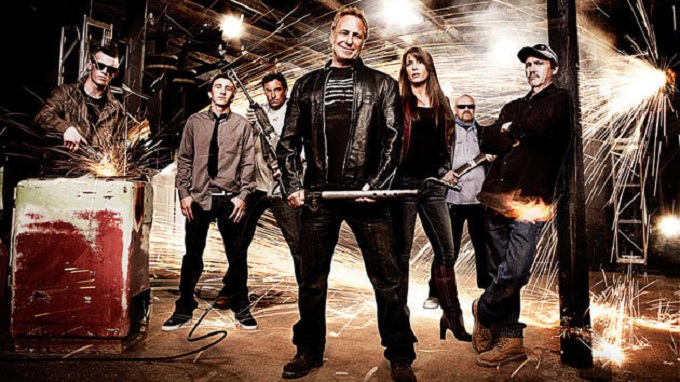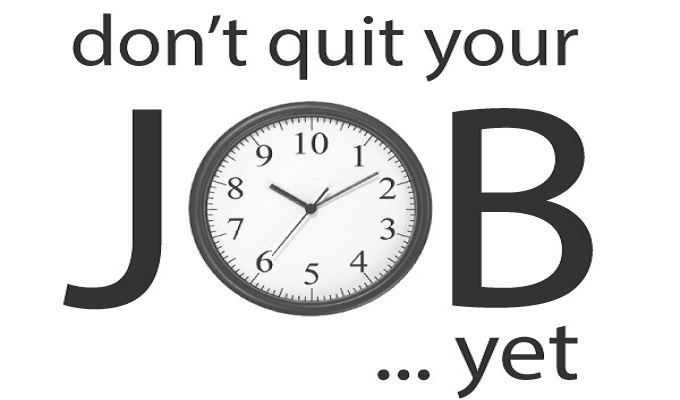Bidding on a storage unit is not always as easy as it appears to be. The once simple task of purchasing a storage unit at good price has become a war of the mind. I wrote this article to help you understand the psychology behind the tactics that others employ to intimidate and discourage you from buying a unit. You may even decide to to use some of these tactics yourself, but if you do, keep in mind that it can backfire on you.
The most important factor in bidding on a storage unit is knowing how much to bid. Knowing the retail cost of merchandise isn't enough, you have to know what second hand merchandise sells for in a competitive market. Add up what you think you can resell everything for, divide it in half and then subtract moving & labor costs. This will help you determine your maximum bid and allow room for profit. Once you have set your cap, stick with it. If the bidding exceeds what you feel the unit is worth, walk away.
Some buyers get their emotions involved in their bidding, especially their pride. You must avoid impulsive buying and getting caught up in the chaos of the bidding process. If you're going to be successful in the storage auction business, you must realize that most of the tactics that others employ aren't personal, it's just business. If another bidder pushes your buttons, don't try to retaliate, it will just end up costing you money in the long run.
Jumping bids
If the bid amount is still fairly low, you may decide to call out an amount well over what the auctioneer was asking for. This strategy can catch others off guard and cause uncertainty. You may be able to discourage other buyers by making them think that you will continue to out bid them.
Waiting until the last minute to bid.
This is a pretty effective strategy if used properly. Basically, you let the other bidders fight it out while you wait quietly in the background. If the bid is still below you're cap, you make a bid right before the auctioneer says “sold”. This strategy, similar to jumping the bid, also catches the other bidder off guard and causes uncertainty. This can really work to your advantage if the other bidder is at or near their bid limit. Because they are now faced with a new competitor, the opposing bidder may just give up.
Slowing your bids
If it's a heads up bidding match between you and another buyer, act like you're unsure if you want to proceed any further. Wait until right before the auctioneer says “sold” before placing your next bid. This is a great way to break the other buyer's spirit by getting his hopes up, then disappointing him. If you do this a few times, the other buyer may start to question if the unit is really worth it.
Bidding high
A reckless but bold tactic; bidding high can sometimes get you the locker you want without a fight. This is how bidding high works. Once the auction begins, you place your maximum bid from the start. Since other bidders aren't expecting the bid amount to reach that level so quickly, it can cause confusion and your bid might be uncontested. If you use this tactic often, you might be labeled as reckless, but if it helps you win the lockers you want, that reputation might be worth having. The main drawback to using this method is that you might overpay.
Talking a unit down
Pointing out the negatives and making others think you aren't interested in a unit can be an effective strategy in smaller crowds. When there are numerous buyers present, there is no way you can communicate with all of them so there is really no use. If you use this tactic, you may want to point out the condition of merchandise or or how much work it will be to clean out the unit.
Reducing the auctioneer's bid increments
If the auctioneer starts the bidding in hundred dollar increments, you should try reduce the increment to a smaller amount as early as possible. Keep in mind that it is in the auctioneers best interest to keep the bid increments as high as possible. This may be difficult to do with some auctioneers, but doing so can help you buy the unit at a better price.
Bidding others up
In my opinion, this tactic is poor etiquette. Although some of the self proclaimed “storage auction gurus” & storage auction reality show stars advocate this type of behavior, it ends up hurting us all in the long run. This tactic is essentially based on revenge or an attempt to limit the competition's ability to purchase another unit.
Ever since the premier of the storage auction reality shows, new buyers have turned out in record numbers. Because of this, it has been difficult to purchase a storage unit at a reasonable price. Some of the old timers are resentful toward new buyers because the new buyers have ambiguously effected their income. Their mentality is “If I can't get the unit, then I'm going to make whoever does pay for it.”
The other theory is that if you can get your competition to spend more money on a unit, they will have less money to spend on the next. Some people even use this tactic to cause others to lose money while hoping that they will get discouraged and not come back to the auctions.
Either way, bidding others up is a bad idea. The whole point of attending an auction is to make money. Just remember, “what goes around comes around.” If you run others up, don't be surprised when they drop a unit on you. There is nothing worse than having to pay a fortune for a unit you didn't even want.
Pretending to bid others up when you really want the unit
This strategy makes your competition feel like you are intentionally running them up, which may cause doubt as to whether the unit is really worth it. The whole point of this strategy is to get the other buyer to feel like they dropped the unit on you. Once again, running others up or acting like you are running others up is a bad idea. If you do run others up, don't make it obvious. Once you are known for this type of behavior, people are going to return the favor ever chance they get, and that is the last thing you need if you are trying to make money at an auction.
Double teaming your competition
This can be an effective strategy if used correctly. If you have a spouse or friend with you at the auction, double teaming your competition can work to your advantage. The other bidders are watching your body language. If you pretend that their bids are way too high by shaking your head or walking away, it can cause doubt in their minds. Right before the auctioneer says “sold”, have your friend or spouse pick up the bidding. You may just get lucky and win the unit.








